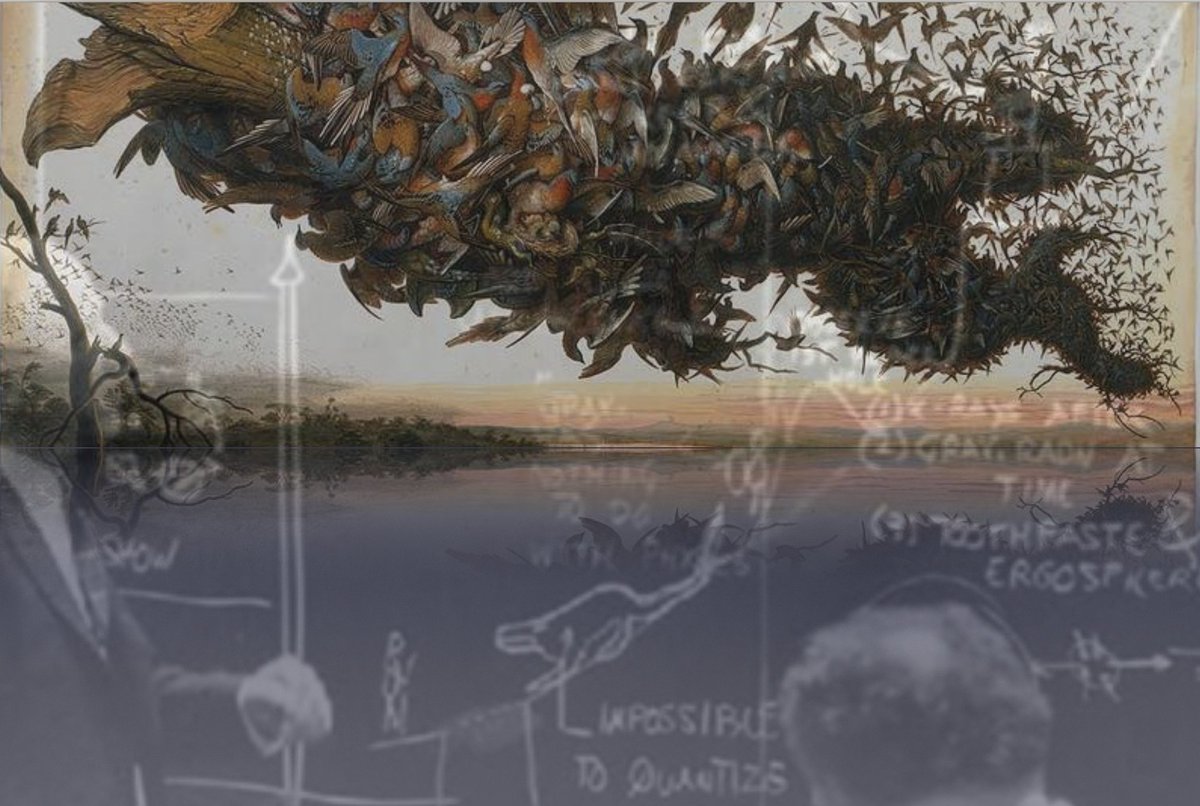

This morning at around 4AM I found myself awake and nearly overturning my long-held commitment to Platonism—the idea that mathematics in its purest form is to be discovered not invented and a logical position that I also extend to computation. My take on Platonism has been that we invent many imprecise representations along the way but that the language is there, as the fabric of the universe, for us—or some version of us—to eventually discover. As Werner Heisenberg remarked, "We have to remember that what we observe is not nature herself, but nature exposed to our method of questioning."
I woke thinking of consciousness and J.A. Wheeler's essay in which he introduced the idea of it from bit and argued biological systems are not a consequence of physics, existing “above it” and largely screened off, but a core, causal set of sub-processes. Not in terms of their influence on particle physics, but in terms of their contribution to loop dynamics, which he proposed describe the origin and evolution of the universe through observer participancy.
Wheeler's proposal is an argument for how the universe evolves. As he writes in his essay, it is not turtles all the way down—ultimately there is no micro and macro, no top and bottom, no infinite hierarchy, no space, no time—but he does seem to allow a mesoscale with complex structure where these concepts emerge and where biology and adaptive systems exist. In this sense it is possible that as interaction order increases with observer participancy new synergies and hence new mathematics or representations are coming into existence and bringing novel structure.
In other words mathematics is being created but not with the usual nominalist meaning. Rather, the optimal representation changes as collective consciousness expands in a non-Euclidean sense. I think to see this possibility requires recognizing we have a bias for Euclidean space, viewing the universe as vast, and this vastness not only as dominating but implying that the small fraction of sentient matter could not possibly have much causal effect. Wheeler in his essay furtively reveals this bias and then proceeds—in suggesting that biology through perception and inference ratchet loop dynamics—to obliterate the reader's commitment to it—one of the reasons I love the essay and his ideas, whether right or not.
To state this in psychological terms, the bias for space and commitment to Platonism might go hand in hand as an outcome of the paradoxically narcissistic feeling of being small and insignificant that looses its power if we instead conceive of our sentience as part of a collective consciousness in which neither magnitude nor scale have meaning.